 W
WIn 1936 a constitutional crisis in the British Empire arose when King-Emperor Edward VIII proposed to marry Wallis Simpson, an American socialite who was divorced from her first husband and was pursuing the divorce of her second.
 W
WThe 2008–2009 Canadian parliamentary dispute was a political dispute during the 40th Canadian Parliament. It was triggered by the expressed intention of the opposition parties to defeat the Conservative minority government on a motion of non-confidence six weeks after the federal election of October 14, 2008.
 W
WThe Congo Crisis was a period of political upheaval and conflict in the Republic of the Congo between 1960 and 1965. The crisis began almost immediately after the Congo became independent from Belgium and ended, unofficially, with the entire country under the rule of Joseph-Désiré Mobutu. Constituting a series of civil wars, the Congo Crisis was also a proxy conflict in the Cold War, in which the Soviet Union and the United States supported opposing factions. Around 100,000 people are believed to have been killed during the crisis.
 W
WThe Exclusion Crisis ran from 1679 until 1681 in the reign of King Charles II of England, Scotland and Ireland. Three Exclusion bills sought to exclude the King's brother and heir presumptive, James, Duke of York, from the thrones of England, Scotland and Ireland because he was Roman Catholic. None became law. Two new parties formed. The Tories were opposed to this exclusion while the "Country Party", who were soon to be called the Whigs, supported it. While the matter of James's exclusion was not decided in Parliament during Charles's reign, it would come to a head only three years after he took the throne, when he was deposed in the Glorious Revolution of 1688. Finally, the Act of Settlement 1701 decided definitively that Catholics were to be excluded from the English, Scottish and Irish thrones, now the British throne.
 W
WThe fatti di Rovereta was a constitutional crisis in San Marino in 1957 in which the Grand and General Council was deliberately rendered inquorate to prevent the scheduled election of Captains-Regent. A provisional government was established in the village of Rovereta, in opposition to the outgoing Captains-Regent whose term had expired.
 W
WFiji's parliamentary election of March 1977 precipitated a constitutional crisis, which was the first major challenge to the country's democratic institutions since independence in 1970.
 W
WThe 16 May 1877 crisis was a constitutional crisis in the French Third Republic concerning the distribution of power between the president and the legislature. When the royalist president Patrice MacMahon dismissed the Opportunist Republican prime minister Jules Simon, the parliament on 16 May 1877 refused to support the new government and was dissolved by the president. New elections resulted in the royalists increasing their seat totals, but nonetheless resulted in a majority for the Republicans. Thus, the interpretation of the 1875 Constitution as a parliamentary system prevailed over a presidential system. The crisis ultimately sealed the defeat of the royalist movement, and was instrumental in creating the conditions of the longevity of the Third Republic.
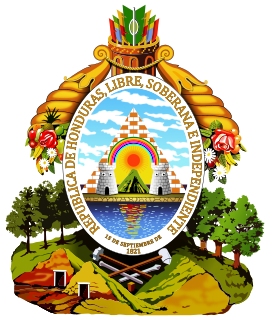 W
WThe 2009 Honduran constitutional crisis was a political dispute over plans to either rewrite the Constitution of Honduras or write a new one.
 W
WThe 2019–2020 Hong Kong protests, also known as the Anti-Extradition Law Amendment Bill Movement, took place from 2019 to 2020 in response to the introduction by the Hong Kong government of the Fugitive Offenders amendment bill on extradition, which was later withdrawn in September 2019. The protests began with a sit-in at the government headquarters on 15 March 2019 and a demonstration attended by hundreds of thousands on 9 June 2019, followed by a gathering outside the Legislative Council Complex to stall the bill's second reading on 12 June.
 W
WThe King–Byng affair was a Canadian constitutional crisis that occurred in 1926, when the Governor General of Canada, the Lord Byng of Vimy, refused a request by his prime minister, William Lyon Mackenzie King, to dissolve parliament and call a general election.
 W
WThe 1988 Malaysian constitutional crisis was a series of events that began with United Malays National Organisation (UMNO) party elections in 1987 and ended with the suspension and the eventual removal of the Lord President of the Supreme Court, Tun Salleh Abas, from his seat. The Supreme Court in the years leading up to 1988 had been increasingly independent of the other branches of the government. Matters then came to a head when Mahathir Mohamad, who believed in the supremacy of the executive and legislative branches, became Prime Minister. Many saw his eventual sacking of Salleh Abas and two other Supreme Court judges as the end of judicial independence in Malaysia.
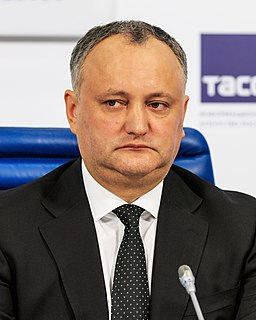 W
WIn mid-2019, a sequence of events following the 2019 Moldovan parliamentary election – and the subsequent attempts to form and install a new government, culminated in the positions of Prime Minister and Speaker of the Parliament, as well as the powers and duties of the President, being claimed by competing individuals.
 W
WThe National Schism, sometimes called The Great Division, was a series of disagreements between King Constantine I and Prime Minister Eleftherios Venizelos regarding the foreign policy of Greece in the period of 1910–1922 of which the tipping point was whether Greece should enter World War I. Venizelos was in support of the Allies and wanted Greece to join the war on their side, while the pro-German King wanted Greece to remain neutral, which would favor the plans of the Central Powers.
 W
WThe 1932 dismissal of Premier Jack Lang by New South Wales Governor Philip Game was the first real constitutional crisis in Australia. Lang remains the only Australian premier to be removed from office by his governor, using the reserve powers of the Crown.
 W
WThe New Zealand constitutional crisis of 1984 was an important constitutional and political event in the history of New Zealand. The crisis arose following the 1984 general election, and was caused by a major currency crisis. The crisis led the incoming government to review New Zealand's constitutional structures, which resulted in the Constitution Act 1986.
 W
WThe 2009–2010 Nigerien constitutional crisis occurred in Niger due to a political conflict between President Mamadou Tandja and judicial and legislative bodies regarding the Constitutional referendum that opponents claimed was an attempt to extend his mandate beyond the constitutional maximum. It was held on 4 August 2009 before a parliamentary election which was mandated to take place by 26 August 2009. The crisis eventually led to a coup d'état by military leaders who overthrew President Tandja and formed a ruling junta.
 W
WThe 1909/1910 People's Budget was a proposal of the Liberal government that introduced unprecedented taxes on the lands and incomes of Britain's wealthy to fund new social welfare programmes. It passed the House of Commons in 1909 but was blocked by the House of Lords for a year and became law in April 1910.
 W
WThe 1992 Peruvian coup d'état, also known as the Fujimorazo, was a self-coup performed during a constitutional crisis that occurred in Peru after President Alberto Fujimori dissolved the Congress of Peru as well as the judiciary of Peru and assumed full legislative and judicial powers.
 W
WThe 2019–2020 Peruvian constitutional crisis began when President Martín Vizcarra dissolved the Congress of Peru on 30 September 2019 considering a de facto denial of the vote of confidence. Congress responded by declaring Vizcarra's presidency suspended and appointed Vice President Mercedes Aráoz as interim president, moves that were largely seen as null and void.
 W
WThe Polish Constitutional Court crisis of 2015 is a political conflict in Poland starting in the second semester of 2015 over the appointment of five of the 15 judges of the Constitutional Tribunal.
 W
WThe Royal Question was a major political crisis in Belgium that lasted from 1945 to 1951, coming to a head between March and August 1950. The "question" at stake surrounded whether King Leopold III could return to the country and resume his constitutional role amid allegations that his actions during World War II had been contrary to the provisions of the Belgian Constitution. It was eventually resolved by the abdication of Leopold in favour of his son Baudouin in 1951.
 W
WThe Russian constitutional crisis of 1993 was a political stand-off between the Russian president Boris Yeltsin and the Russian parliament that was resolved by military force. The relations between the president and the parliament had been deteriorating for some time.
 W
WA constitutional crisis began in Samoa on 22 May 2021 when O le Ao o le Malo Tuimalealiifano Va'aletoa Sualauvi II issued a proclamation purporting to prevent the Legislative Assembly from meeting in the wake of the general election in April 2021. Court rulings had upheld the election results, giving a parliamentary majority to the Faʻatuatua i le Atua Samoa ua Tasi (FAST) party, led by Fiame Naomi Mataʻafa. On 24 May 2021, a makeshift ceremony was held outside of Parliament to swear in Mata'afa as prime minister.
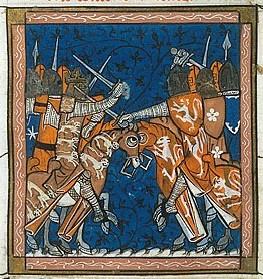 W
WThe Second Barons' War (1264–1267) was a civil war in England between the forces of a number of barons led by Simon de Montfort against the royalist forces of King Henry III, led initially by the king himself and later by his son, the future King Edward I. The barons sought to force the king to rule with a council of barons rather than through his favourites. The war also featured a series of massacres of Jews by de Montfort's supporters including his sons Henry and Simon, in attacks aimed at seizing and destroying evidence of baronial debts. To bolster the initial success of his baronial regime, de Montfort sought to broaden the social foundations of parliament by extending the franchise to the commons for the first time. However, after a rule of just over a year, de Montfort was killed by forces loyal to the king in the Battle of Evesham.
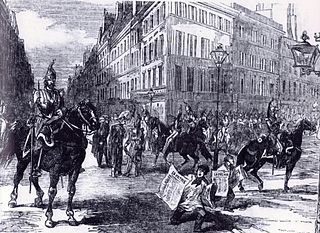 W
WA self-coup, or autocoup, is a form of coup d'état or putsch in which a nation's leader, having come to power through legal means, dissolves or renders powerless the national legislature and unlawfully assumes extraordinary powers not granted under normal circumstances. Other measures taken may include annulling the nation's constitution, suspending civil courts, and having the head of government assume dictatorial powers.
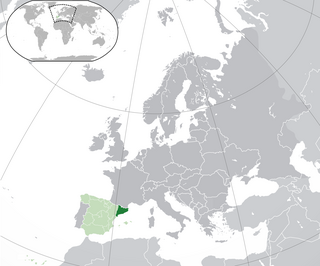 W
WThe 2017–2018 Spanish constitutional crisis, also known as the Catalan crisis, was a political conflict between the Government of Spain and the Generalitat de Catalunya under former President Carles Puigdemont—the government of the autonomous community of Catalonia until 28 October 2017—over the issue of Catalan independence. It started after the law intending to allow the 2017 Catalan independence referendum was denounced by the Spanish government under Prime Minister Mariano Rajoy and subsequently suspended by the Constitutional Court until it ruled on the issue. Some international media outlets have described the events as "one of the worst political crises in modern Spanish history".
 W
WA constitutional crisis began in Sri Lanka when President Maithripala Sirisena appointed former president and member of parliament Mahinda Rajapaksa as Prime Minister on 26 October 2018 before formally dismissing the incumbent Ranil Wickremesinghe, resulting in two concurrent Prime Ministers. Wickremesinghe and the United National Party (UNP) viewed the appointment as illegal, and he refused to resign.
 W
WThe Tuvaluan constitutional crisis was a political dispute in Tuvalu between the government, led by Prime Minister Willy Telavi, and the opposition, led by Enele Sopoaga, that was precipitated by the death of the Minister of Finance, Lotoala Metia MP on 21 December 2012, which eliminated the government's majority. The dispute was eventually resolved in August 2013 by a motion of no confidence in Prime Minister Willy Telavi, following which Enele Sopoaga was elected Prime Minister.
 W
WThe Parliament Act 1911 is an Act of the Parliament of the United Kingdom. It is constitutionally important and partly governs the relationship between the House of Commons and the House of Lords, which make up the two Houses of Parliament. The Parliament Act 1949 provides that the Parliament Act 1911 and the Parliament Act 1949 are to be construed together "as one" in their effects and that the two Acts may be cited together as the Parliament Acts 1911 and 1949.
 W
WThe 1876 United States presidential election was the 23rd quadrennial presidential election, held on Tuesday, November 7, 1876, in which Republican nominee Rutherford B. Hayes faced Democrat Samuel J. Tilden. It was one of the most contentious presidential elections in American history and its resolution involved negotiations and compromise between the Republicans and Democrats.
 W
WOn 29 March 2017, the Supreme Tribunal of Justice (TSJ) of Venezuela took over legislative powers of the National Assembly. The Tribunal, mainly supporters of President Nicolás Maduro, also restricted the immunity granted to the Assembly's members, who mostly belonged to the opposition.
 W
WOn 30 April, during the Venezuelan presidential crisis, a group of several dozen military personnel and civilians joined Juan Guaidó in his call for an uprising against Nicolás Maduro as part of what he labeled "Operation Freedom". Reuters reported an "uneasy peace" by the afternoon of 30 April. During the uprising attempt, opposition leader Leopoldo López was freed from house arrest after being imprisoned for five years. The head of the Bolivarian Intelligence Service, Manuel Cristopher Figuera denounced the Maduro government and was dismissed from his position before going into hiding. At least 25 military men who opposed Maduro sought asylum at the Brazilian embassy in Caracas.
 W
WThe Venezuelan presidential crisis is an ongoing crisis concerning the leadership and the legitimate president of Venezuela which has been contested since 10 January 2019, with the nation and the world divided in support for Nicolás Maduro or Juan Guaidó. The process and results of the 20 May 2018 presidential election were widely disputed. The opposition-majority National Assembly declared Maduro a "usurper" of the presidency on the day of his second inauguration and disclosed a plan to set forth its president Guaidó as the succeeding acting president of the country under article 233 of the Venezuelan Constitution. A week later, the Supreme Tribunal of Justice declared that the presidency of the National Assembly was the "usurper" of authority and declared the body to be unconstitutional.